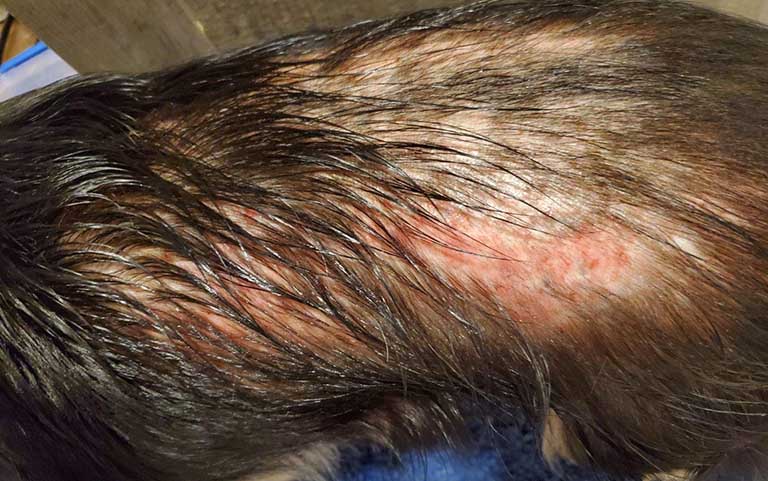Allergies can take a major toll on a pet’s health and skin. Hypersensitivity can be caused by a number of different types of foods, environmental factors or bug bites. Catch the signs early by knowing what to look for so that you can go to the vet before the reaction becomes severe. Learn in this blog common allergies for pets, what tests diagnose certain allergies and important treatments to help heal and lessen allergy hypersensitivity.
Symptoms of Allergies in Pets
Symptoms of allergies in cats and dogs include stomach issues, skin inflammation and infections. Pets who have an allergic reaction usually have red skin on their body and paws. The inflamed skin is itchy and uncomfortable. The animal may try to relieve the irritation by biting, scratching, licking or rubbing. This makes the skin even redder and open to infection. The constant itching can cause hair loss in the area of skin inflammation. Other signs of allergies include red eyes, facial swelling and hives.
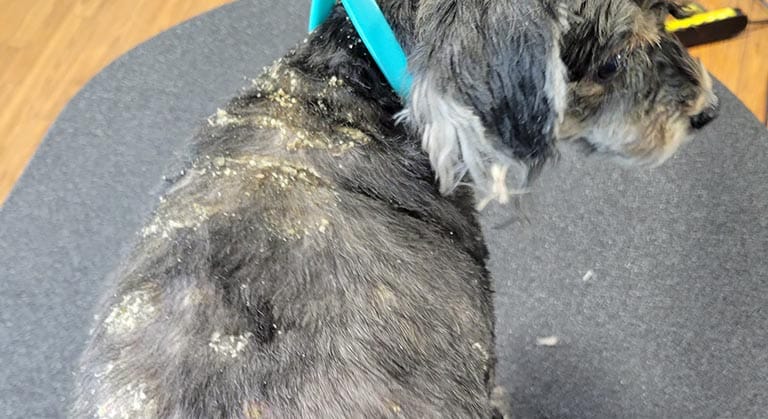
A secondary symptom of allergies is ear infections. The pet may scratch, shake their head or have discharge coming from one or both their ears. Another sign of allergies is diarrhea and vomiting. All these symptoms show up in an animal between 15 minutes to a couple of days. How quickly the signs appear depends on the sensitivity of the pet. Other factors include how much and how long the cat or dog was exposed to the allergy-inducing substances.
Take your pet to the vet when you begin to see the signs of an allergic reaction. Write down everything your cat or dog has come into contact with or eaten. This information gives the vet a better idea of what your pet has been exposed to lately. If the cat or dog is having difficulty breathing, go to the emergency room immediately.

Common Types of Hypersensitivities in Cats and Dogs
Food allergies
Common food allergies in dogs include dairy, beef, chicken, chicken eggs, soy and wheat gluten. Cats tend to have a hypersensitivity to beef, fish, chicken and dairy. Pets can either be born with this allergy to a certain food or develop an allergy after being frequently exposed to a particular type of food. For example, beef is the number one food allergy in dogs because that protein is in the majority of canine food and treats.

Environmental allergies
Environmental allergies include grass, mold, dander, trees, weeds, dust and dust mites. This type of sensitivity can be seasonal or be present all year round. The level of symptoms can range from mild to severe depending on the time of year. Environmental allergies are also known as airborne or seasonal allergies.

Flea Bite Dermatitis
Flea bite dermatitis is the leading cause of allergies in dogs. This allergy is a hypersensitive reaction to the saliva of an adult flea bite. Pets with environmental allergies tend to be at a higher risk of also developing flea bite dermatitis.
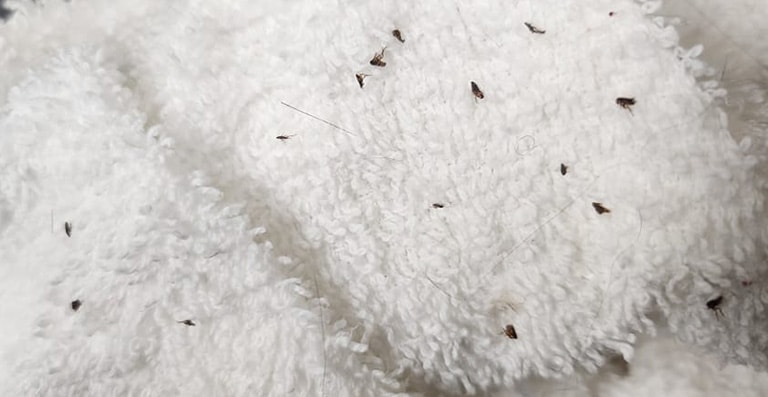
How are Allergies in Pets Diagnosed?
Skin Test
This type of allergy diagnosis is also called an intradermal skin test. This procedure is done by a vet dermatologist and the cat or dog is sedated during this testing. The vet dermatologist shaves a patch of hair along the pet’s rib cage and marks dots in little rows. Different allergens get injected into each individual dot and the reactions are monitored. The swelling or lack of swelling around the injection site tells the vet or allergy specialist if the animal is allergic to that particular allergen. Skin tests are done for environmental hypersensitivities.
Blood Test
The RAST test (Radioallergosorbent test) is conducted by taking a blood sample from the pet. No shaving or sedation is necessary in this procedure. The blood is submitted to a laboratory for analysis, and technicians test for the amount of IgE antibodies which are present during an allergic reaction. This is usually a cheaper option than a skin test, but is not considered as accurate.
You can have your pet’s allergies tested by purchasing a kit like this one. Have your vet draw the blood. Then send in the sample and consult with your vet once you receive the results.
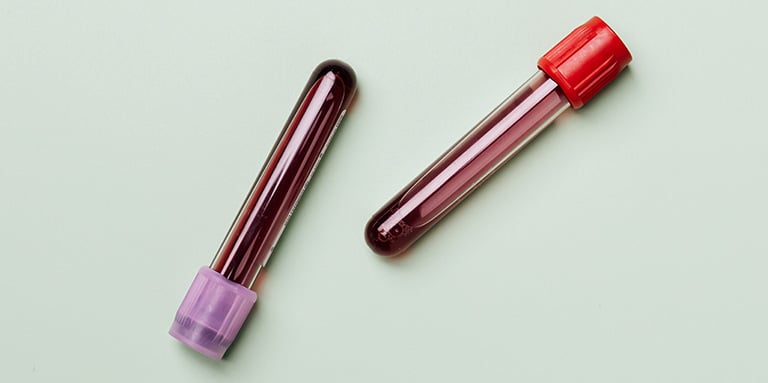
Elimination Diet Trial
To discover a food allergy, a vet may put a cat or dog on an elimination diet trial. This test period lasts for around 12 weeks. The pet owner must be strict in giving their animal only the food the vet has recommended for the whole duration of the testing period. The pet is provided food that is suspected to produce no allergic reactions. If the animal’s overall health improves, then the owner can be put on the right path regarding what to continue to avoid. A lack of healing creates another opportunity to test other foods.
How To Help Pets with Hypersensitivities
Recommended by a Vet
Pets with food allergies need to stay completely away from any food that causes them to have an allergic reaction. Follow the diet recommended by your vet. Year-round flea and tick prevention needs to be given to cats and dogs to help protect them against flea bite dermatitis. If you suspect your home has an infestation, call an exterminator.
A vet may prescribe oral or injectable medications to help the pet cope with high seasonal allergies. Steroids may be given but should never be used long term due to negative side effects. An immunotherapy or allergy vaccine can be given and has a 60-70% success rate.
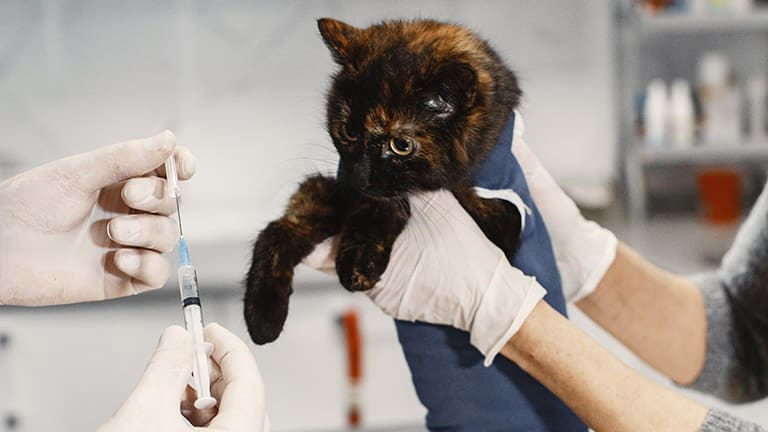
Natural Approach to Pets with Allergies
If you’re looking for a more holistic approach to help with pet allergies, there are a couple options. Local organic honey contains pollen from the area where a pet lives. Given over time, the honey lessens the animals sensitivity to that pollen. Coconut oil digested or used as a moisturizer can lessen the inflammation caused by allergens. Omega-3s provide essential fatty acids that can help calm a pet’s reaction to inflammation. Aloe vera also has healing properties when applied to the irritated skin on a pet’s body. Read here for more suggestions on holistic options.
Grooming
Give a pet a bath schedule to help wash away any potential allergens that attach themselves to the animal’s fur. Speak with your groomer about more consistent bathing appointments for your pet and ask about any add-ons that may provide relief. For example, Smoochie Pooch offers a Nexderma Skin & Coat Detox treatment that addresses inflammation and itching. We also have a flea treatment that kills fleas but is safe for your pet.
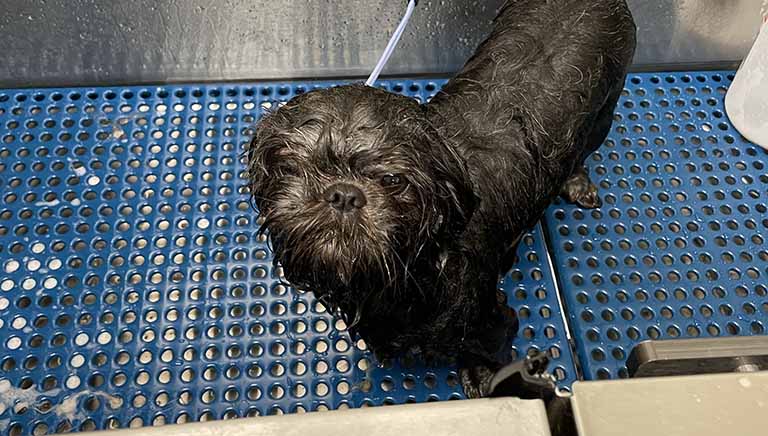
Relieve the Itch
Hypersensitivities can be a genetic issue or can be developed over time. Make an appointment with your vet when you see your pet showing any signs of an allergic reaction. The symptoms can increase if no treatment is given to the animal. Through testing and treatment your pet has a good shot at significantly decreasing their symptoms and may even become less sensitive to their allergies.


